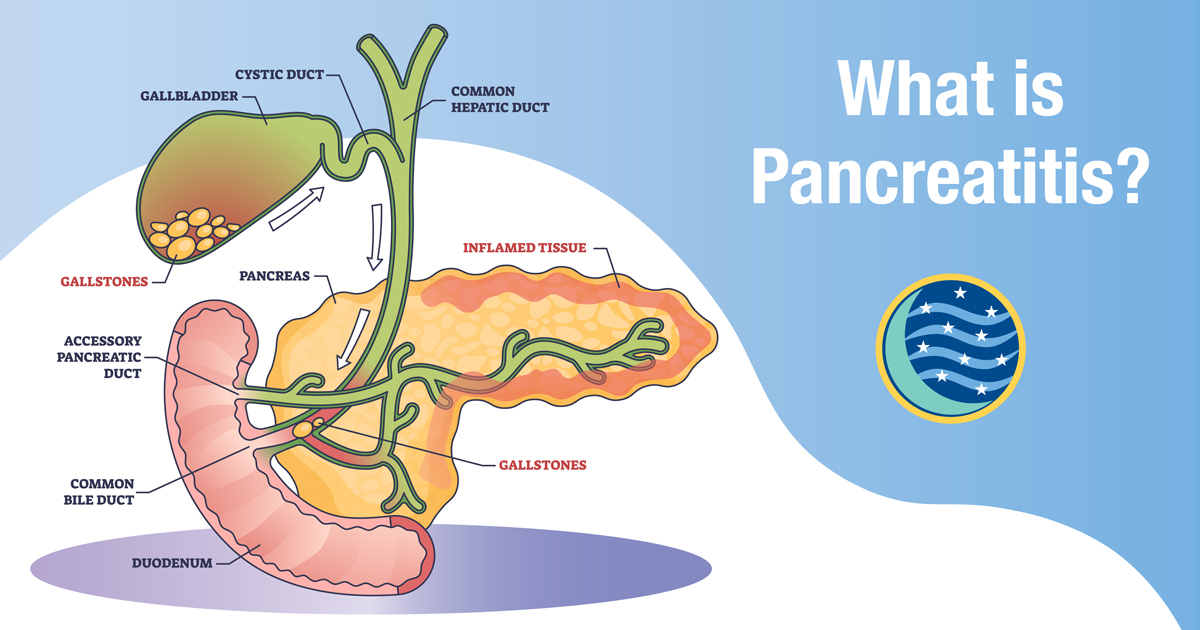Pancreatitis is an inflammatory condition of the pancreas, with both acute (short-lived) and chronic forms, and a known risk factor for developing pancreatic cancer, especially in cases of long-term chronic inflammation.
Inflammation is an important part of the body’s response to infection or physical injury; it’s the signal that brings in the immune cells to fight the infection or to start the healing process. Usually, when the infection or injury is resolved, inflammation stops, but sometimes, this does not happen. This is called chronic inflammation and can damage cells and tissues. While pancreatitis is rare, it is a risk factor for developing pancreatic cancer.
Acute vs Chronic Pancreatitis
- Acute Pancreatitis: This is a sudden inflammation often caused by gallstones that physically block the vessels of the pancreas or with heavy alcohol consumption. The main symptom is severe abdominal pain. While it usually affects just the pancreas, it can sometimes be more widespread and life-threatening.
- Chronic Pancreatitis: This type involves long-term inflammation that damages the pancreas tissue over time and can decrease the ability of the pancreas to function. A mixture of risk factors includes chronic alcohol use, tobacco use, and inherited genetic mutations. As the pancreas gets damaged, it can lead to issues like weight loss, malnutrition, and diabetes, and it raises the risk of pancreatic cancer.
Pancreatitis is generally considered acute (short-lived) or chronic, but there is a spectrum of disease between these two designations. Patients can have one acute case over the course of their lives or multiple episodes, and acute pancreatitis, when not treated, can lead to chronic pancreatitis.
Chronic Pancreatitis & Substance Abuse
Alcohol abuse can cause chronic pancreatitis and increase the risk of developing pancreatic ductal adenocarcinoma (PDAC), the most common form of pancreatic cancer. The risk is further increased in those patients who also smoke. As the body breaks down alcohol, it generates byproducts that can be toxic to cells. If there is a buildup of these toxic byproducts, an increase in digestive enzymes can occur. An overproduction of these enzymes, meant to break down protein in our foods, can disrupt the cells of the pancreas and lead to further health problems.
While genetics and inherited conditions are beyond our control, we can limit inflammation and reduce risk factors. Ongoing research aims to find better treatments and improve outcomes for pancreatitis patients. If you or a loved one has pancreatitis and needs help, please contact Patient Support.


